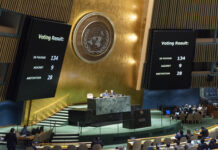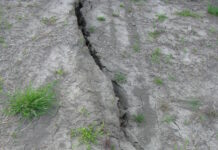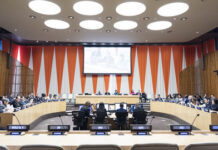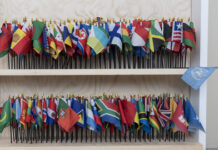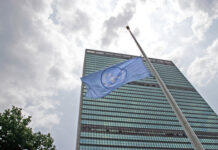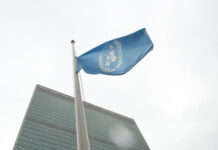In an alert, the International Organization for Migration (IOM) noted that torrential rains have unleashed catastrophic flooding and mudslides while also severely damaging roads, bridges and dams.
More than 637,000 people have been affected by weeks of deluges including 234,000 displaced in just the last five days. There is no official figure for the number of dead.
Never-ending emergency
“The (displacement) numbers keep rising,” the UN agency said, noting that the flooding emergency was one of the “harsh realities” of climate change, which has claimed lives and uprooted entire communities.
“As these individuals face the daunting task of rebuilding, their vulnerability only deepens,” said Rana Jaber, IOM Regional Director for East and Horn of Africa.
“In this critical moment – even as IOM responds – the call remains urgent for sustainable efforts to address human mobility spurred by a changing climate,” she continued.
Africa is highly vulnerable to climate change despite contributing only about four per cent to global greenhouse gas emissions. The East and Horn of Africa has particularly been impacted by alternating cycles of drought and intense precipitation over the last decade, IOM maintained.
Amid the worst rains and flooding in decades, IOM along with governments and partners continue to provide lifesaving assistance to affected populations who have lost family members and now face a heightened risk of waterborne disease.
In Burundi, IOM has distributed emergency shelter, blankets, cooking utensils, solar lamps dignity kits and other items to more than 5,000 people. The UN agency also supports the relocation of people at risk to safe and less flood-prone areas.
Help is also underway in neighbouring Ethiopia – to more than 70,000 flood-affected people across Somali and Oromia regions – and to 39,000 people in Kenya’s most severely flood-affected east, centre and west – and Somalia, where some 240,000 people are to receive shelter materials, hygiene kits, essential medical care and psychosocial support, among other services.
Climate talks imperative
Ahead of UN-led discussions in Germany in June to tackle climate change, IOM insisted that it was increasingly “evident” that any discussions on our warming planet and its impact on the environment should now include considerations of human mobility and displacement.
East African leaders have already signed and committed to the Kampala Ministerial Declaration on Migration, Environment and Climate Change to address the “challenges and the opportunities of climate mobility”, IOM said. But greater efforts are needed to support its implementation, “including advocating for the inclusion of climate mobility at global climate discussions such as the upcoming COP29 in November 2024, taking place in Baku, Azerbaijan”.
Source of original article: United Nations (news.un.org). Photo credit: UN. The content of this article does not necessarily reflect the views or opinion of Global Diaspora News (www.globaldiasporanews.com).
To submit your press release: (https://www.globaldiasporanews.com/pr).
To advertise on Global Diaspora News: (www.globaldiasporanews.com/ads).
Sign up to Global Diaspora News newsletter (https://www.globaldiasporanews.com/newsletter/) to start receiving updates and opportunities directly in your email inbox for free.




